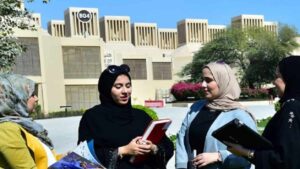If you want to study abroad, you have to start preparing well in advance. During the Corona period, since various uncertainties have arisen regarding tasks such as obtaining the necessary documents or visa processing, it is better to make some preparations in advance. How you can complete the preparation little by little, know 10 tips related to this.
1. First of all the university, department and session should be decided
Applying to universities in the US and Canada is a little different than in Europe and Australia. If you are planning to study abroad, first Google the details of various universities. Application deadline, what documents to send, how much is the cost…Know, and understand, which educational institution is suitable for you. Generally, applications for admission to various universities should be made between March and October. Admission is done in a few sessions, in this case, plan which session you want to take admission in.
2. Obtain the original certificate
Collect the original mark sheet and certificate of secondary, and higher secondary examination from the education board or college. Honors mark sheet and certificate should be collected from the University Registrar’s Office for applying for Post Graduation. It should also be noted that many universities in Europe and America require sending the certificate in a university-specified envelope for post-graduate studies.
3. Keep passport ready
A passport number is required in many cases while applying to universities. Apart from this, the passport is useful for SAT, GRE, GMAT, IELTS, and TOEFL exams. If you don’t have a passport, you have to make one or if the validity is less than six months, you have to make a new one. The spelling of the name in the passport should be the same as the secondary-higher secondary certificate. Many cannot apply for admission or scholarships due to spelling mistakes.

4. Take the SAT, GRE, GMAT, IELTS or TOEFL test
SAT, GRE, or GMAT scores are given a lot of importance in foreign universities to demonstrate competence in various fields. Apart from this, IELTS and TOEFL scores are very important as evidence of language proficiency. These tests require time, effort, and score as high as possible.
5. Preparation of LOR, SOP, LOI
The terms LOR, SOP, and LOI are very familiar in foreign university admissions. A ‘Letter of Recommendation’ or LOR should be collected from a college or university teacher or a well-regarded person in the academic field. Generally, different universities have specific forms of LORs, which can be obtained from the institution’s website. Write a ‘Statement of Purpose’ or SOP and a ‘Letter of Interest’ or LOI about why the subject or department you are applying for is important to you, potential research topics, how you want to research, and what you are interested in. While writing these two letters, you should write completely as yourself. No way to ‘cut-copy-paste’ from anywhere else. You have to write this letter in your own language from your own experience. Separate LOR, SOP, and LOI should be prepared for the various universities to be applied for.
6. Collection of other documents
In the case of higher education, work experience in voluntary organizations, awards, and participation certificates in various international competitions are considered very important during the application process. Such a certificate is to be submitted along with the application.
7. Applications should be sent to the university before the deadline
Many universities have to send the application form by courier about 20-25 days before the last date of application. It takes different times to send application forms from Bangladesh to different countries, in this case courier should be done on time. The uncertainty regarding this has increased during the Corona period. So be careful. Applications received after the submission date are in most cases not accepted.

8. Attestation of certificate
Attested copies of original certificates have to be submitted along with applications to various universities. The certificate must be attested by a university teacher or a notary public. The admission process can be blocked at any time if fake or fake attestation is done.
9. Inquire at the embassy
There is an opportunity to get information about higher education from the embassies of different countries located in Bangladesh to study in different countries. Information on scholarships and fellowships can be found on websites such as the American Center for US, the British Council for UK Study, and Goethe Institute for Germany.
10. Networking
Networking is very important when studying abroad. You can get information support from various Facebook groups including the organization of Bangladeshi students of the university to which you want to apply.
Source: Prothom Alo




